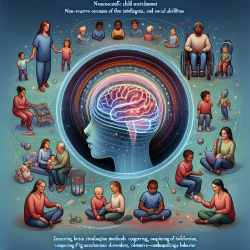The Umbrella Movement in Hong Kong was a significant political event that not only shaped the region's political landscape but also had profound impacts on the physical and mental health of its citizens. For practitioners working with individuals affected by such movements, understanding these impacts is crucial for providing effective support.
The Umbrella Movement: A Brief Overview
The Umbrella Movement, which took place between September and December 2014, was a pro-democracy protest against the Chinese government's decision to pre-approve candidates for Hong Kong's Chief Executive election. This movement saw a significant portion of the population participating in protests, leading to widespread social and economic disruptions.
Mental Health Implications
A study published in the Journal of Affective Disorders examined the prevalence of anxiety and depressive symptoms among Hong Kong citizens following the Umbrella Movement. The findings were alarming: nearly half of the respondents reported moderate to severe anxiety symptoms, while 14.4% reported moderate to severe depressive symptoms.
- Anxiety Symptoms: 47.35% reported moderate to severe levels.
- Depressive Symptoms: 14.4% reported moderate to severe levels.
The study highlighted that personal and social resource loss were critical predictors of these poor mental health outcomes. Practitioners should be aware that individuals experiencing significant resource loss may be at higher risk for mental health issues during times of political unrest.
The Role of Resource Loss
The Conservation of Resources (COR) theory suggests that resource loss is central to understanding stress adaptation. In the context of the Umbrella Movement, personal resources such as optimism and control over one's life were significantly depleted, leading to increased anxiety and depression.
- Personal Resource Loss: Associated with higher anxiety and depressive symptoms.
- Social Resource Loss: Linked to increased odds of depressive symptoms.
This underscores the importance for practitioners to focus on resource management strategies when supporting individuals affected by political movements. Encouraging clients to rebuild personal and social resources can be a key strategy in mitigating mental health impacts.
Encouraging Further Research
This study serves as a foundation for further research into the psychological impacts of political movements worldwide. Practitioners are encouraged to explore similar studies in other regions to better understand how different contexts might influence outcomes. By staying informed through continuous research, practitioners can enhance their skills and adapt their approaches to better meet the needs of those affected by such events.
Threat to democracy: Physical and mental health impact of democracy movement in Hong Kong










